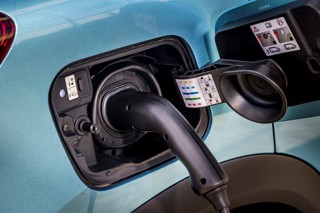The average tax take from a company car has increased by £274 per vehicle, breaking the £3,000 barrier for the first time, analysis of new figures from HMRC suggest.
A company car, on average, yielded the Treasury £3,125 from benefit-in-kind (BIK) tax and National Insurance Contributions (NICs) in 2019/20.
That was a 9.6% year-on-year increase on the average company car tax take of £2,851 reported in 2018/19, following a double-digit surge of 11.8% the previous year.
In terms of the total tax collected from BIK and NICs, however, the year-on-year change was marginal due to the dramatic drop in company car drivers.
The amount of tax collected from company car drivers and their employers by HMRC increased by £20 million to £2.5 billion in 2019/20.
The number of company cars fell by 70,000 to 800,000 vehicles – an 8% year-on-year decline.
The BIK tax paid by employees stayed the same year-on-year at £175bn, while tax revenue from NICs, paid by employers on the cars they operate, was up £20m to £750m, provisional figures suggest.
The increasing tax take, despite the dwindling company car parc, means the amount of tax the Government yields from a company car has been steadily increasing year-on-year.
There was a 9.7% uplift in the average yield from 2016/17 to 2017/18 and a further 7% increase the previous tax year.
At the start of the decade (2009/10), a company car was worth, on average, £1,680 in BIK and NICs to the Treasury.
It collected £1.63bn from 970,000 company cars, which was £870m less than the £2.5bn collected in 2019/20, despite 170,000 more employees receiving the benefit.
The increasing tax take can, in part, be explained by the increase reported in the taxable value.
In 2019/20, the taxable value of the company car benefit was £5.42bn, up from £5.27bn the previous year, according to HMRC figures. It was approximately £2bn less, 10 years ago.
However, much of the increased tax take seen in the company car market has been down to the annual two percentage point increase in BIK rates, first introduced in 2015/16 (in previous years there had typically been a one percentage point increase).
This latest HMRC data set is from the financial year prior to BIK tax tables being overhauled and the introduction of the 0% BIK rate for pure electric vehicles (EVs) being introduced from April 2020.
Just 10,000 cars were reported to have emissions below 75g/km of CO2 in 2019/20, but since then leasing companies have reported a growing number of company car drivers adopting plug-in cars, which will, inevitably, have an impact on the Treasury’s tax income.
With the sale of new internal combustion engine (ICE) cars and vans ending from 2030 and hybrids from 2035, and the Government consulting on a ban on new diesel trucks from 2040, the Treasury needs a plan to plug a potential £30bn shortfall from road taxes, including fuel duty.
The Government is understood to be considering road pricing as a potential alternative, with vehicles charged per mile driven. However, when fleets were asked about the potential change to vehicle taxation earlier this year, opinion was divided.
Fewer than half (45%) of the respondents to the Fleet News survey said they were in favour of an alternative pay-as-you-go taxation scheme based on miles driven. More than a third (36%) said they were not.
MPs on the transport committee launched an inquiry into road pricing in December; it has yet to publish its findings.























Login to comment
Comments
No comments have been made yet.